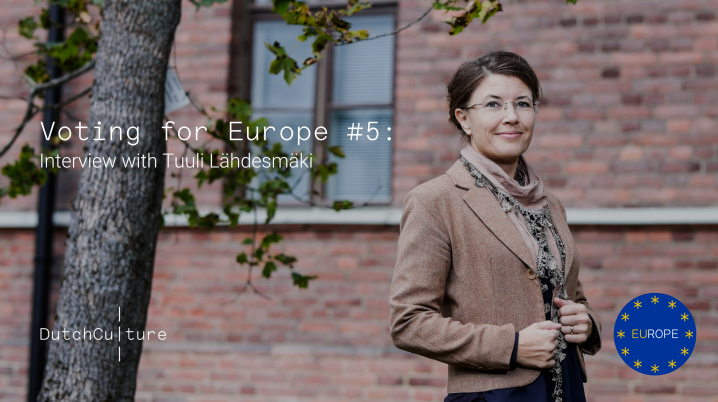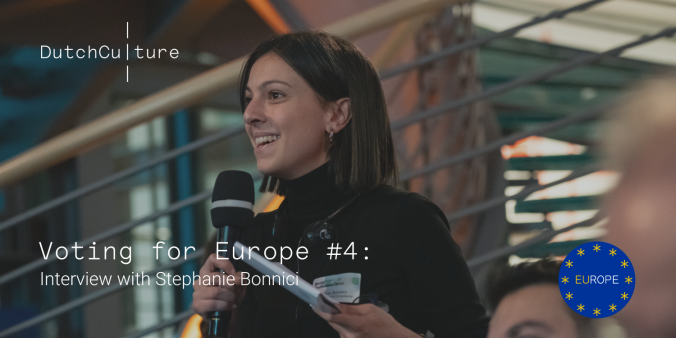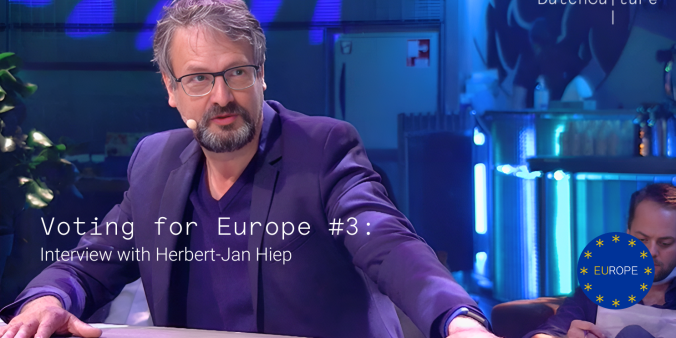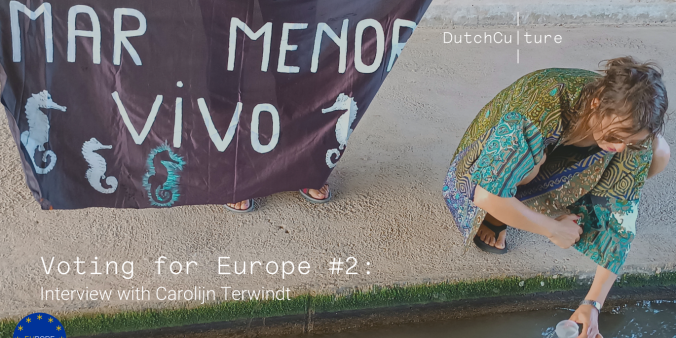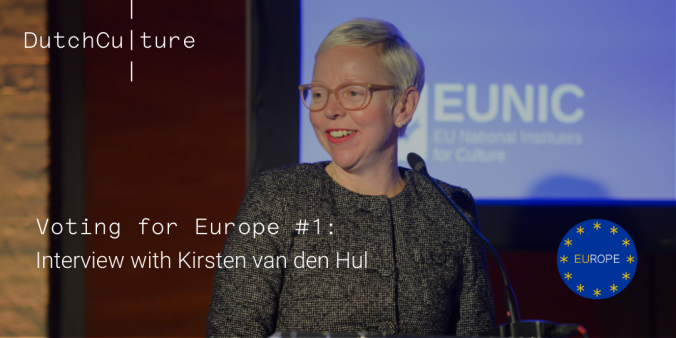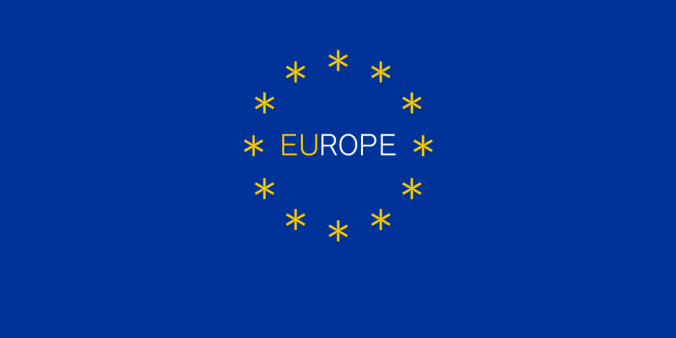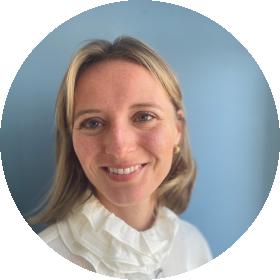
Citizens from 27 EU countries recently had the opportunity to vote in the European Parliament Elections. This crucial event continues to shape the future of Europe and our planet, influencing European cultural policies for the coming years. Considering the outcome, fundamental values such as democracy, human rights, and freedom of speech remain at stake as the new parliament is formed.
That is why we will continue to reflect on the role of culture in nurturing a united Europe for the rest of the year. In this interview series, we are eager to learn from artists and a wide range of cultural professionals about what Europe and the EU mean to them personally and for their practice. Additionally, we explore how cultural exchange can contribute to a stronger shared European social and cultural space.
Tuuli Lähdesmäki
In this interview, we talk to Tuuli Lähdesmäki, associate professor at the Department of Music, Art and Culture Studies, University of Jyväskylä, Finland. She is currently involved in two Horizon Europe-funded research projects: REBOOT on the European film industry and ELABCHROM on cultural heritage research. Previously, she researched EU cultural heritage policy, politics and initiatives. We spoke to her in Antwerp, where she was a visiting fellow at the University of Antwerp in spring 2024.
Do you perceive yourself as European? Why?
"I do feel European, and it means a lot to me. From a civic point of view, I think it is a huge privilege to be European, live in Europe and have European citizenship. But also from a cultural point of view, because I am an art historian who works on European cultural heritage and cultural narratives. Perhaps the most meaningful aspect to me is the pragmatic one. Due to my work, I travel a lot in Europe, collaborate with colleagues from European countries and work on EU-funded projects.
This is a really funny question for me. In my previous research project, my research team and I asked the same question to over 300 people we interviewed at European Heritage Label Sites in 10 European countries. Many of our interviewees replied that Europe is somewhere else from where they were at the moment. Even in countries in central or western Europe, like Austria or France, quite many people consider Europe to be somewhere else. Europe is a large and abstract concept, so it’s difficult to locate it in a specific place: it is everywhere, but nowhere.
Of course, everyone has their view of Europe based on their background. We have various backgrounds that impact us: not just our national background, but also our cultural background, education, language, field of work, interests, hobbies, religion, etc.”
Can you share a specific example or experience that illustrates the impact of European cultural cooperation on your work?
”I'm happy to be involved in two EU-funded research projects. The REBOOT project explores the competitiveness of the European film industry, is led by the University of Vienna, and has twelve partners. It researches the European film industry and how European films can have bigger audiences in and beyond Europe through better promotion, circulation and distribution. For this, we need better regulation and better policies. That’s a big question for one project to answer and solve, therefore we need to work together with experts from different European countries and backgrounds.
The other project is ELABCHROM, seeking to strengthen cultural heritage research capacities. It’s funded by Horizon Europe WIDERA and led by the Lucian Blaga University of Sibiu in Romania. I find this important because in many countries, scholars have become more interested in cultural heritage. It is a multidisciplinary discipline, related to various cultural, social and political questions. Therefore, it is a field that merits more attention and development.”
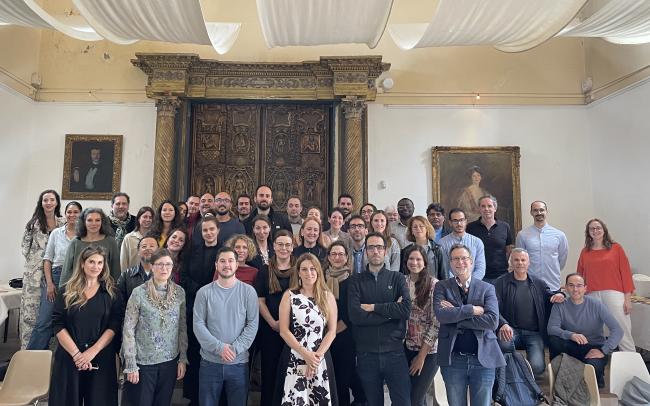
In this context of cultural collaboration, how important is the outcome of the European elections in your opinion? What is at stake?
“It’s extremely important for various reasons. There are critical issues, maybe I could even say crises, that the EU and Europe are facing. Think about security, war, climate change, environmental crisis, border issues, inclusion and so on. All of these challenges influence culture and the cultural sector.
At the same time, culture has the potential to contribute to or even solve them. Through arts and culture, people can exchange views, express ideas, have a dialogue, test novel ideas and imagine the future. That is why the cultural sector is essential. The EU should support projects that allow all this, particularly for young people, with their futures still ahead of them.
Collaboration requires motivation from the people involved, but it also requires resources, financial support and some coordination and facilitation. I hope the EU will continue to provide this, and that the European Parliament sees value in international cultural collaboration. Looking at the EU budget, the funding for the cultural sector is very tiny compared to other sectors. So, I hope it will grow, or at least stay the same.”
What challenges and opportunities do you see for cultural collaboration across European borders, and how do you think they can be tackled?
“The challenge, and at the same time the opportunity, for all collaborations and exchanges is to engage diverse people and communities bottom up. Especially when collaborative projects become bigger, there is a need for some sort of coordination or top-down facilitation, which has to be based on trust: trust in the grassroots level of the collaborating actors, trust in their knowledge and their views.
A participatory approach to cultural heritage, management and decision-making is now trending in the heritage field. Even on the EU level, this has been debated. In 2018, during the European Year of Cultural Heritage, the EU invited an Open Method of Coordination group to write a really good report on the participatory governance of cultural heritage.
However, I still think there is work to be done. We should make the best practices that have already been identified better known among heritage professionals. And more broadly among cultural managers: people who are in the position to coordinate and facilitate participatory cultural collaboration and exchange. That’s a challenge. The tools are there – now professionals must know that these tools exist and put them into practice.”

Do you have a message for the European people, for policymakers, MEPs, or other decision-makers about the importance of supporting and prioritising European cultural collaboration?
“The basis for all policies in Europe is that Europeans believe in Europe, as a political community, an economic community and a social and cultural community. In short, that Europeans see it as a community that shares democratic values.
It’s important that there’s trust among Europeans and that there are visions for the future. In this regard, the cultural sector becomes extremely important. Europeans should not only know Europe’s history and heritage, but also today’s diversity of cultures. This is a crucial basis for developing Europe as a polity and furthering the European project, as well as increasing a sense of belonging in Europe. Cultural collaboration is one key to doing this.”
What are your favourite European cultural tips?
“It’s difficult to pick only a few examples! Last spring I was in Antwerp as a visiting fellow, where I spent my free time visiting the many museums. I can recommend visiting them. In MAS (Museum aan de Stroom) for example, I learned a lot about the city’s history. I like how the permanent exhibition tells the stories in a multivoiced way.
My other recommendation is the sauna culture in Finland, something I have missed while in Antwerp. Sauna culture is selected as a Finnish representative for the UNESCO list of Intangible Cultural Heritage. For me, it is a living heritage that nurtures one's physical and mental wellbeing. It’s worth a try!”
Europe & DutchCulture
DutchCulture is connected to Europe in a number of ways. We work closely with the Dutch embassies in 24 focal countries worldwide, including nine in Europe. We establish collaborations with these countries in the field of culture and cultural heritage. With our Europe + Heritage programme, Dutch heritage professionals are stimulated and enabled to set up European heritage knowledge exchanges. We offer advice on the Creative Europe programmes and seek to shape the future of cultural relations through the EUNIC network.
